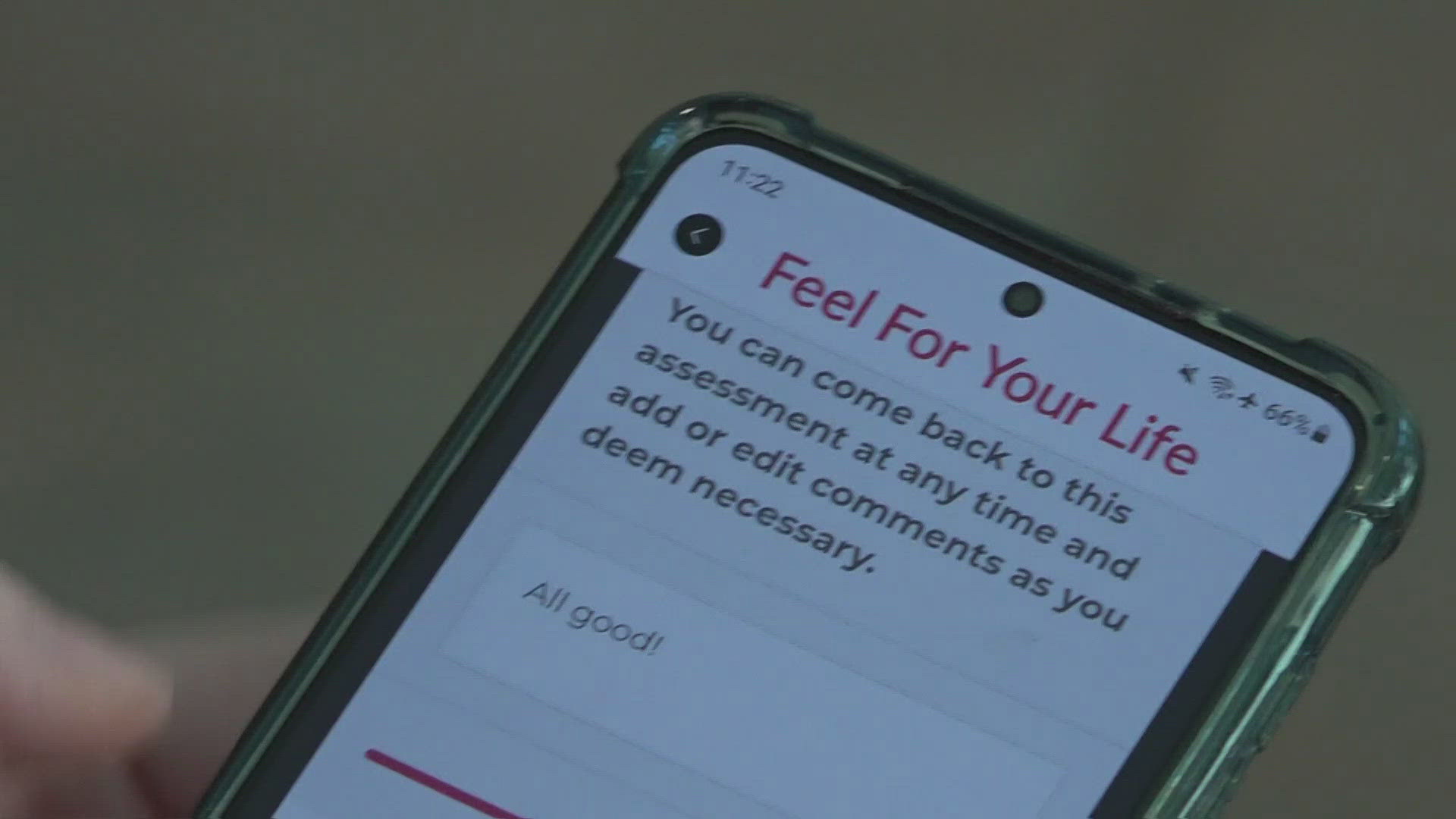KNOXVILLE, Tenn. — A Tennessee woman created an app to help others understand their breast cancer diagnosis, a resource she said she wished she had when she was diagnosed.
Jessica Baladad first discovered a lump in her breast by accident when she was 18 years old. Although it was benign, a lumpectomy during her freshman year of college led her to complete regular self-breast exams. Around 15 years later, at 33 years old, she found another lump.
"I thought, 'Oh my God. I just went to the doctor. Surely she would have said something about this,'" Baladad said. "She [the doctor] actually thought I was too young for cancer."
The app, "Feel for Your Life" is available for free on major platforms, including The App Store and the Google Play Store. Baladad said since its launch over the COVID-19 pandemic, it's been downloaded 65,000 times and is saving lives around the world.
The app helps guide women to understand how to do a monthly self-exam, track results, and set reminders that will notify users when they're due for another check. The app also uses artificial intelligence to translate pathology reporting into terms people can understand.
"You understand your body, you understand the scan itself and it'll also automatically populate questions to ask your medical provider so that you're not left in the dark," she said.
Baladad said she wishes this app would have been around when she was going through her own pathology reports, which she said had language that was confusing and sounded like a death sentence.
"When you read 'invasive ductal carcinoma' on your pathology report, you're going to the 'Dr. Google' and trying to find answers and what this means," Baladad said. "You're basically looking up answers like, 'Am I gonna die?'"
Recently, a Food and Drug Administration ruling said doctors must notify women if they have dense breast tissue, which could mean women have a higher risk for cancer because it's harder to spot abnormalities in a normal mammogram.
Baladad continues to advocate for breast cancer research and hopes her story inspires women to advocate for their own health.
"I want them to feel confident, having conversations about screenings with their medical providers and I want them to feel good about advocating for their breast health," Baladad said.

